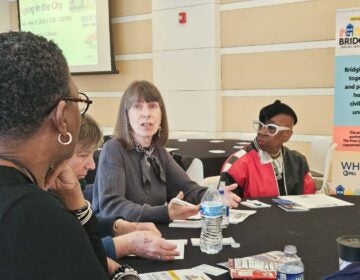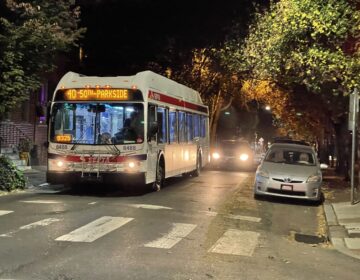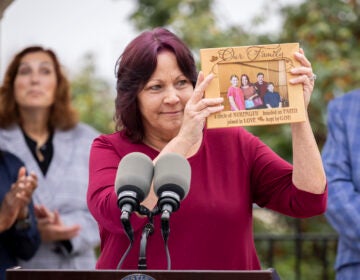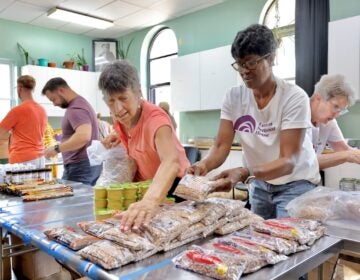Philadelphia senior companions help aging adults combat loneliness with friendship and support
The Philadelphia Corporation for Aging’s Senior Companion Program pairs older adults with seniors who are aging in place.
Listen 3:16
Joseph Dennis (right), a volunteer with Philadelphia's Senior Companion Program, walks with James Henry, who has a visual impairment and needs assistance leaving the house. (Emma Lee/WHYY)
From Philly and the Pa. suburbs to South Jersey and Delaware, what would you like WHYY News to cover? Let us know!
Every Thursday and Friday morning, Joseph Dennis drives to the Olney neighborhood in North Philadelphia to visit James Henry, who is 61 and has trouble seeing due to a visual impairment.
During a recent visit, Dennis sat on the living room couch on the far end closest to Henry, who was set up in his own chair.
“Just sitting back, just relaxing, just kicking it,” Dennis said with a big smile.
The two men often talk about music, movies and the news.
“Mr. Henry, he loves to listen to the radio, music. And his favorite music is Gospel music,” Dennis said.
Henry also likes to sing.
“I got something today, you all can hear it,” he said, rolling right into the chorus of one of his favorite Gospel songs, “I Got Love.”
“I got love, love, love, in my heart,” Henry sang as Dennis nodded to the beat. “I got peace, I got joy, I got love, love, love in my heart, in my heart.”
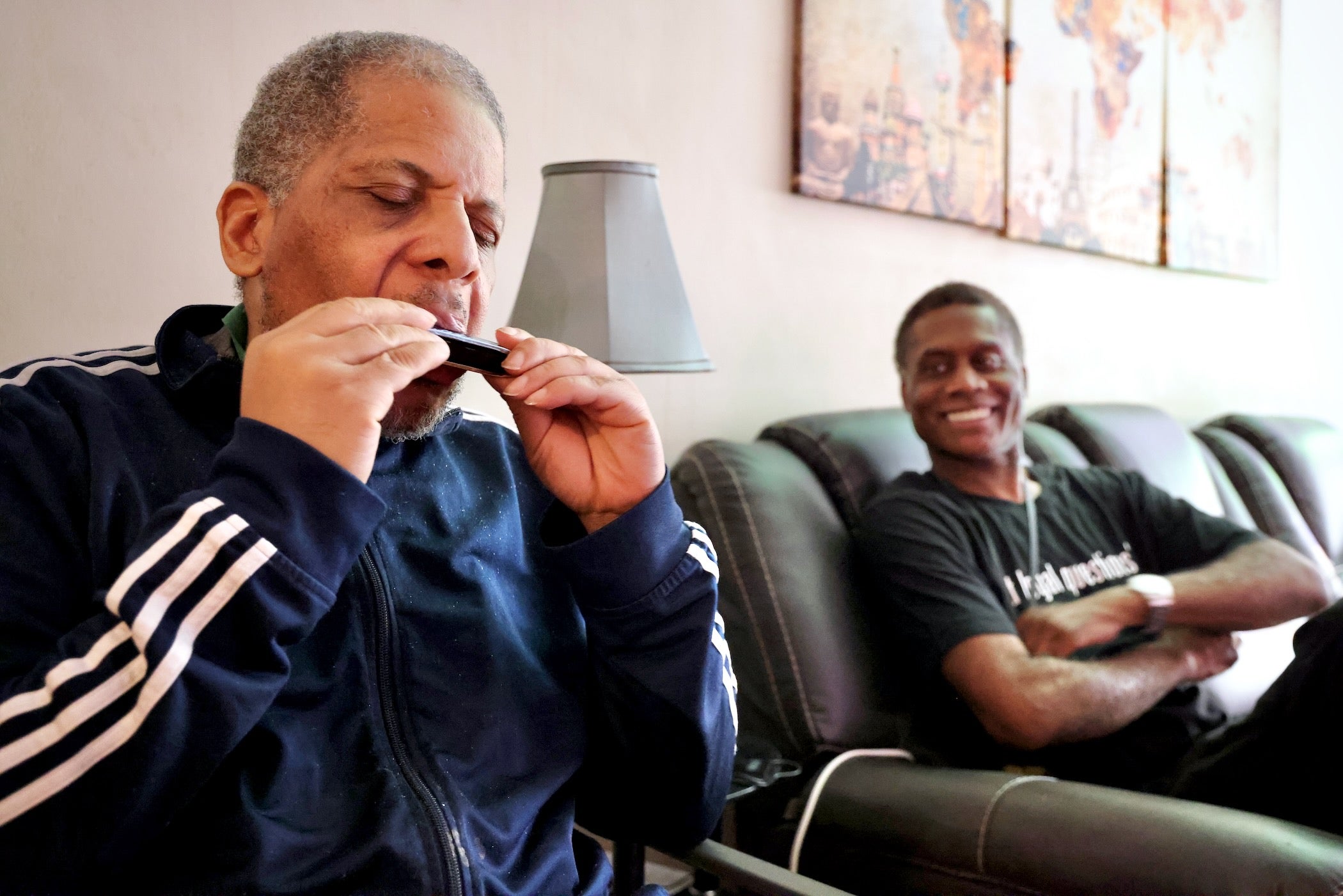
This has been their routine for a couple years now, ever since Dennis, 63, became Henry’s senior companion through a program at the Philadelphia Corporation for Aging that aims to support residents aging at home through friendship and social connection.
The Senior Companion Program has become a way to combat loneliness and isolation, which can be pervasive. Research shows it can contribute to cognitive decline, depression and heart disease.
“When people get older, if they don’t have a family that really looks after them, they can feel isolated and lonely and everything,” Dennis said. “This program helps me help people feel as though they still count, they’re still important, they’re still relevant.”
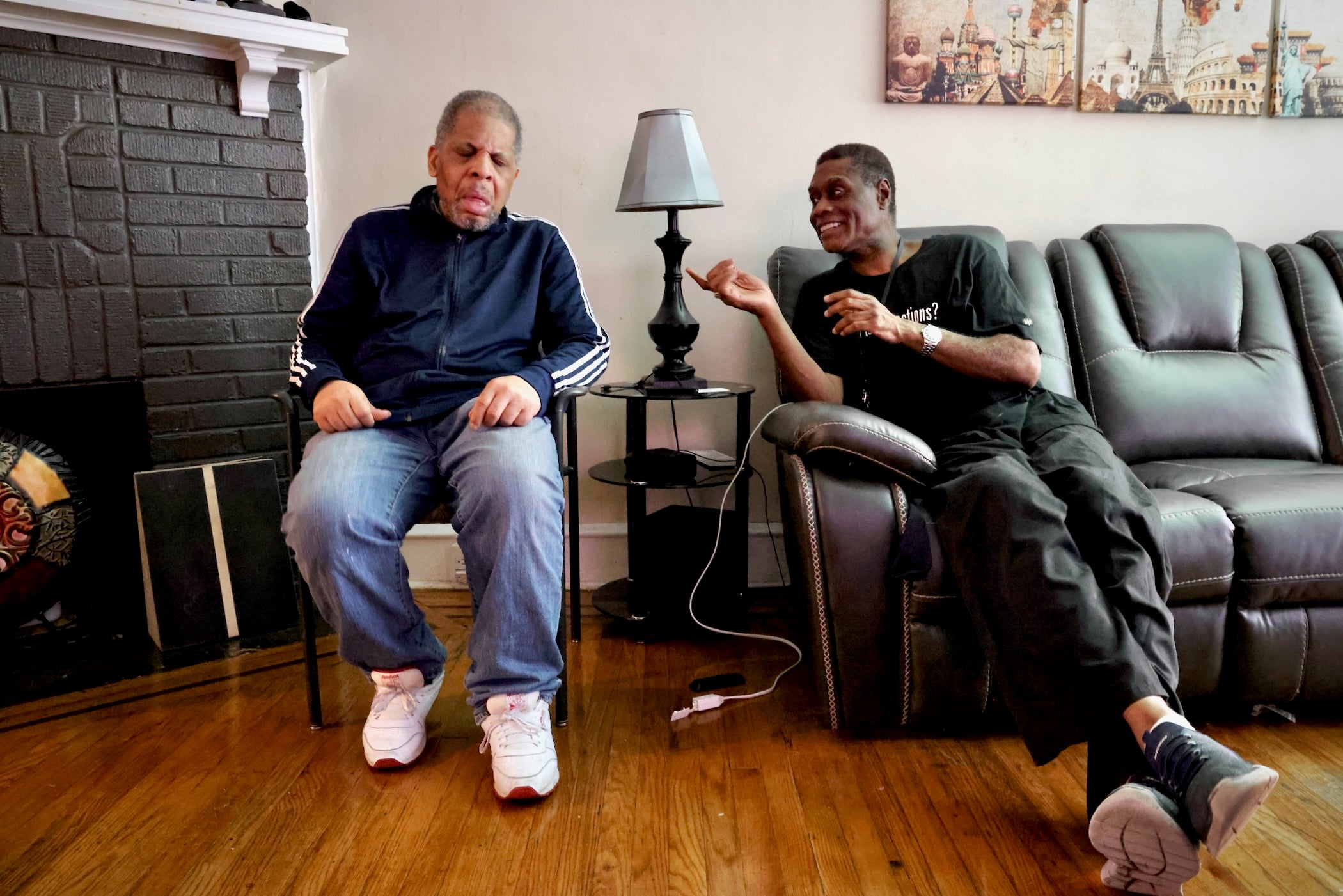
Senior companions must be 55 or older and dedicate at least 20 hours a week to visiting aging residents who are still independent, but may have disabilities or other health conditions.
Volunteers go through background checks, special training and get a cash stipend and reimbursements for travel.
The program is federally funded through AmeriCorps Seniors and served about 63 seniors in fiscal year 2024, program officials said. Currently, there are about 43 active companion volunteers.
After retiring in 2016 from his job at Cooper University Hospital in Camden, Dennis said he suddenly had a lot of free time on his hands. He then read about the senior companion program looking for volunteers in a local paper.
“You get tired just sitting around the house watching TV every day,” Dennis said. “Being in the program, it gives me something to look forward to every day.”
When Henry and Dennis aren’t listening to music at home, they try to take field trips in the city.
“Having lunch at Reading Terminal, going down to Penn’s Landing,” Dennis said. “James likes movies, so he wants to see a nice movie, and so we’re trying to arrange a nice movie date somewhere.”
Sometimes, he also runs errands for Henry, like picking up groceries or self-care items.
“He might say, ‘Joe, can you go to the store for me?’ I say, sure. So, I might go to the corner store down there and get some little smart items for him,” Dennis said. “Whatever James needs, I’m here to serve his needs.”
“I got to go to the barbershop to get my hair cut, he goes with me,” Henry added.
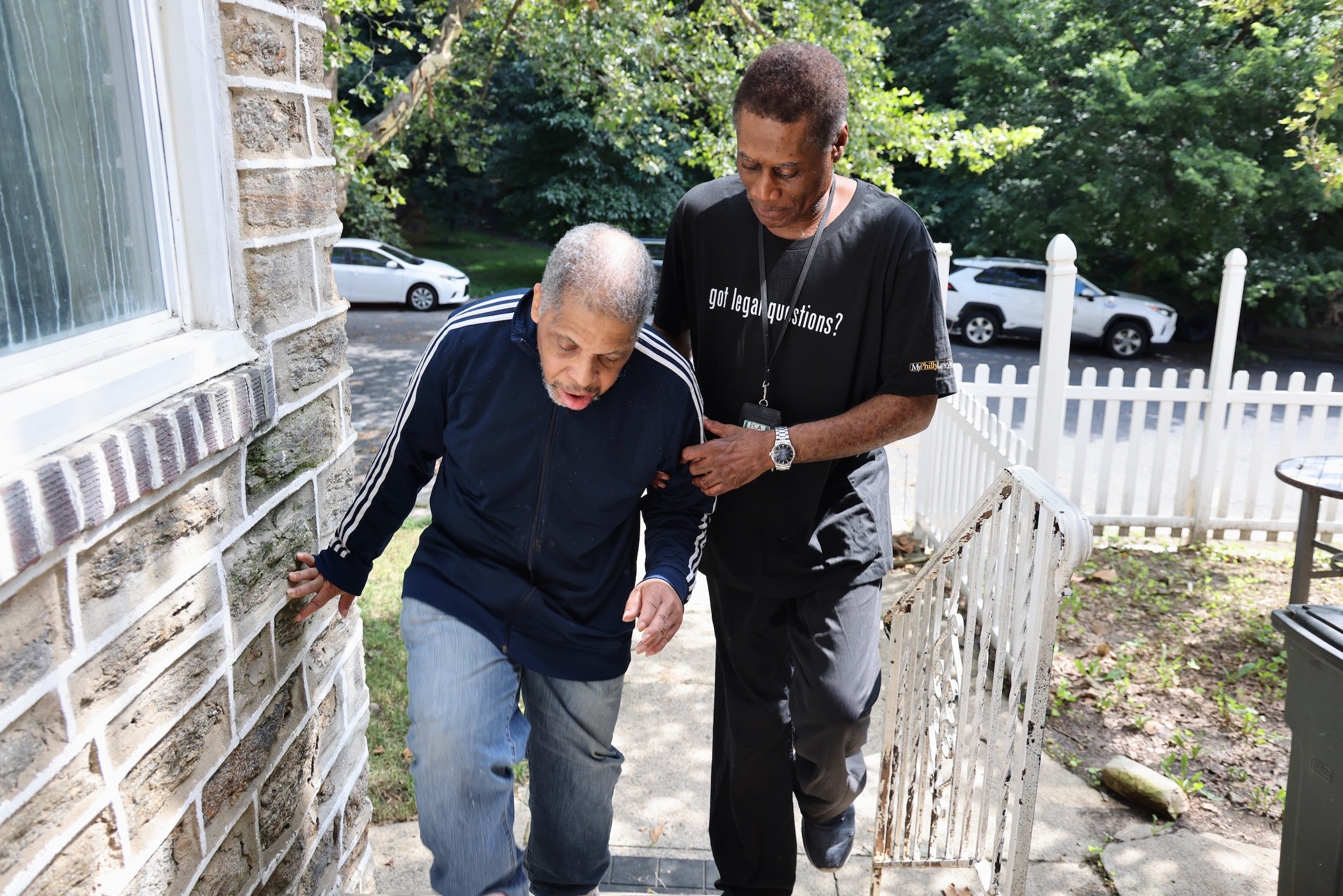
Senior companions can also offer some respite for family members or other caregivers who help homebound residents like Henry with their daily needs. But most importantly, the program helps people make connections and forge friendships.
The benefits go both ways, Dennis said.
“The pleasure of just helping and bringing happiness and joy to someone’s life,” he said, “making them feel that they’re important and they have something to live for and they have zest for life — that’s definitely the big benefit of becoming a companion in the program.”
On a recent sunny Friday morning, Dennis and Henry took a walk down the block for some fresh air and exercise. When they got back, Henry pulled out a harmonica and put on a little show while Dennis cheered on his friend, right up to the end.
“Alright, James, my man,” Dennis said, clapping.
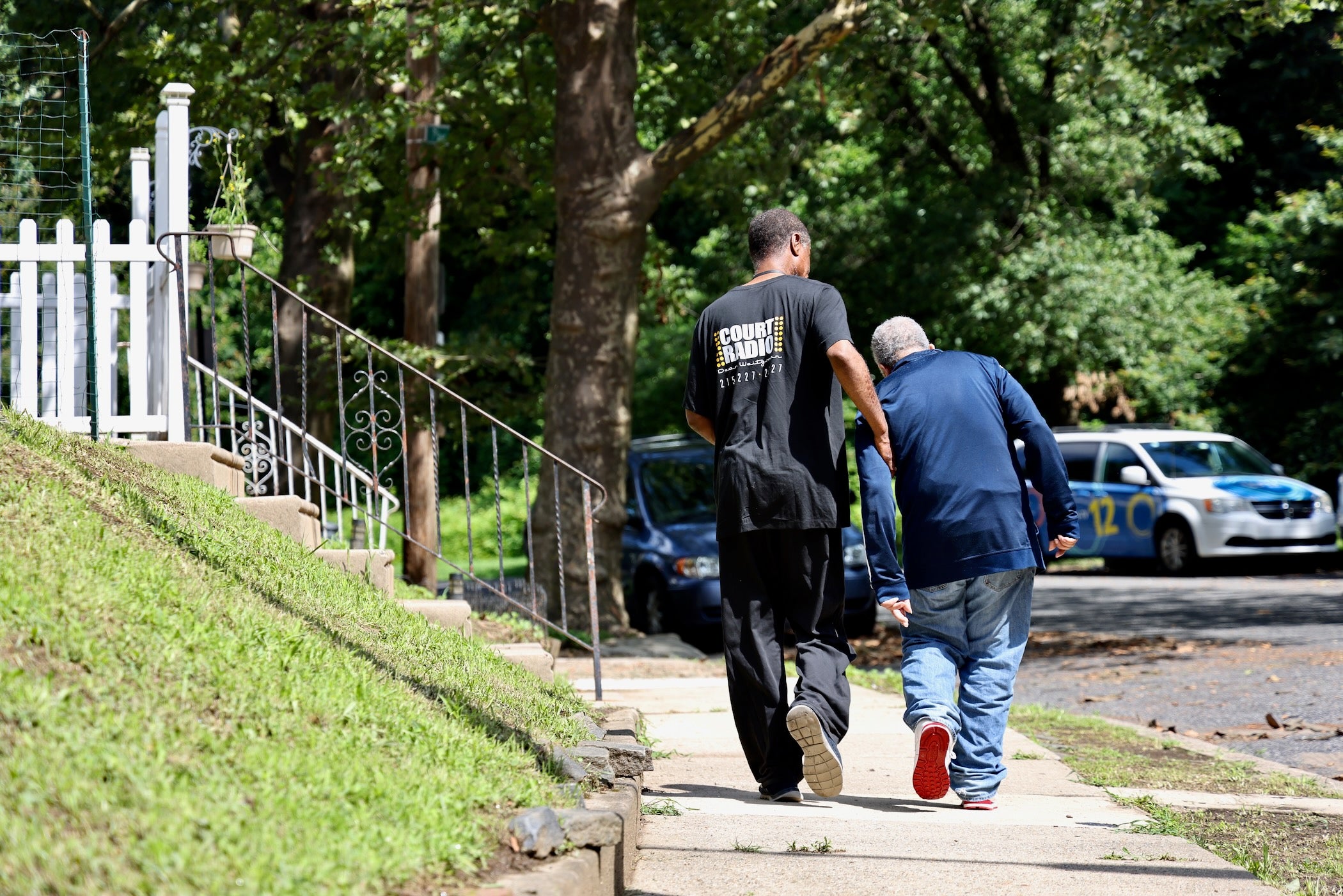

Get daily updates from WHYY News!
WHYY is your source for fact-based, in-depth journalism and information. As a nonprofit organization, we rely on financial support from readers like you. Please give today.


